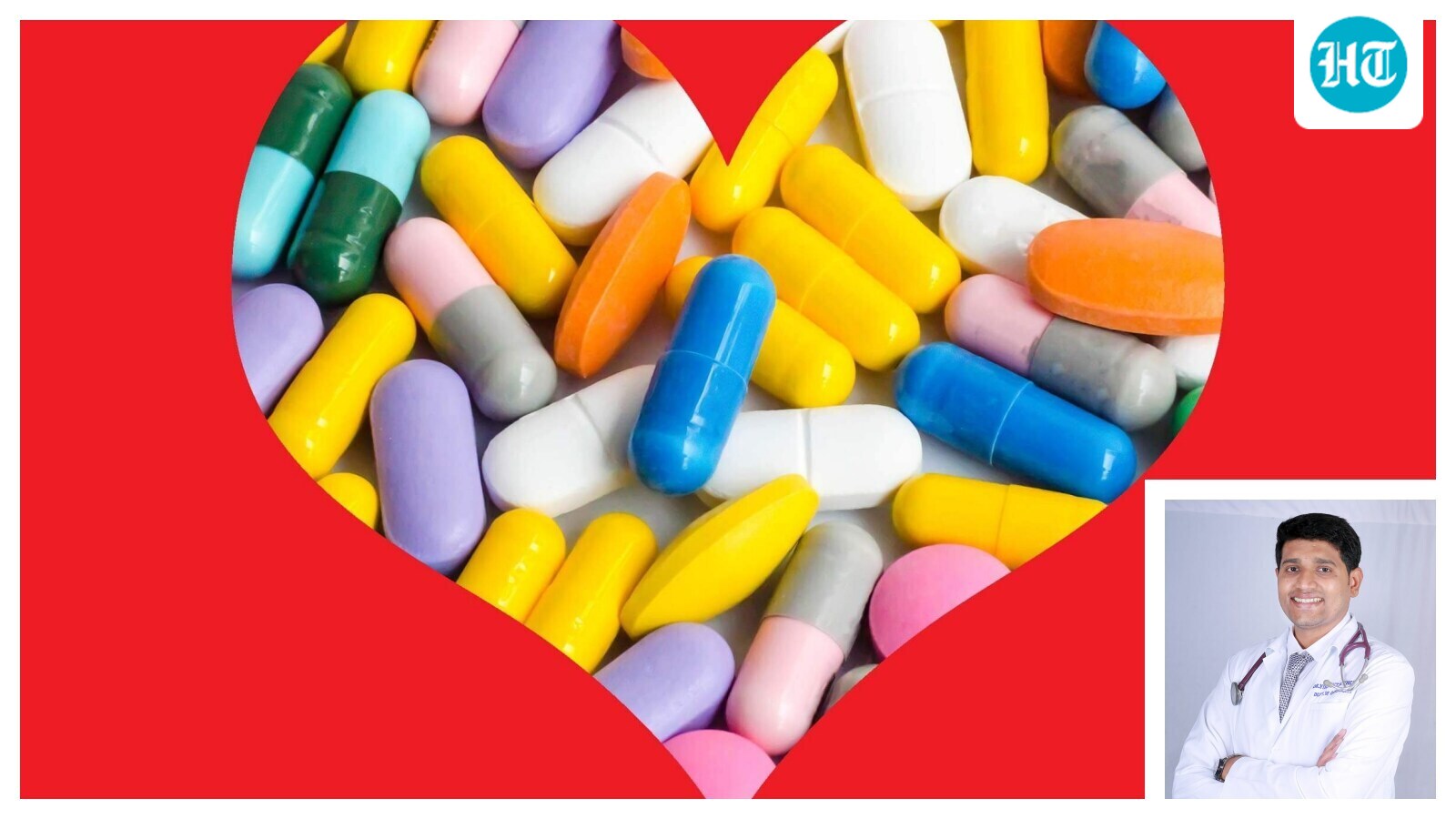Lifestyle
Cardiologist Recommends Daily Supplements for Heart Health

World Heart Day 2025 highlights the importance of heart health, prompting discussions about the role of dietary supplements. Dr Vikrant Khese, an interventional cardiologist at Apollo Clinic, advocates for daily supplements that can significantly contribute to cardiovascular well-being. He emphasizes his personal routine, which includes magnesium, omega-3 fatty acids, and vitamin D, as essential for those looking to improve heart health.
Cardiologist’s Daily Supplement Routine
As a cardiologist, Dr Khese employs a hands-on approach to health supplements. “I personally include magnesium, omega-3 fatty acids, and vitamin D in my daily regime,” he states. “These are particularly beneficial for individuals who are deficient in these nutrients.” Each of these supplements plays a crucial role in supporting heart health.
Magnesium, for instance, is known to regulate heart rhythm, lower blood pressure, and prevent vascular calcification. According to research published in The American Journal of Clinical Nutrition, adequate magnesium intake may reduce the risk of severe cardiovascular events, such as arrhythmias, strokes, and atherosclerosis.
Omega-3 fatty acids are recognized for their cardiovascular benefits, particularly in lowering triglycerides and reducing inflammation, which are critical factors in heart disease. Similarly, vitamin D, often linked with bone health, has also been associated with various cardiovascular conditions. Maintaining sufficient levels of vitamin D is vital, especially for those at an elevated risk of heart issues.
Guidance on Supplement Use
When advising patients on supplements, Dr Khese emphasizes the importance of relying on scientific evidence. “We should carefully review studies to understand how safe and effective these supplements are in supporting a healthy diet,” he explains. He believes that before recommending specific supplements, it’s essential to consider a patient’s overall health, existing medications, and lifestyle.
While supplements can provide additional support, Dr Khese strongly advocates for a balanced diet rich in fruits, vegetables, whole grains, and healthy fats. “Supplements can be helpful, but they should not replace a healthy diet. Instead, they should add to it,” he insists.
Numerous studies highlight the link between omega-3 fatty acids and lower triglyceride levels, as well as reduced inflammation. Similarly, extensive research from the UK National Health Institute supports magnesium’s role in regulating blood pressure and preventing heart disease. Dr Khese stresses that a nutritious diet typically meets most nutritional needs for heart health. Supplements should primarily be for individuals with deficiencies or specific health threats.
Dr Khese points out that whole foods provide vital nutrients that promote heart health, making them a preferable option over supplements whenever possible. “If I were to recommend just one supplement, it would undoubtedly be omega-3 fatty acids,” he notes, highlighting extensive research that validates its benefits in reducing inflammation and improving cholesterol levels.
While the market is flooded with various supplements, Dr Khese warns against those that promise miraculous results. “I see some ‘miracle’ supplements that claim to fix all heart health issues as likely overrated,” he cautions. He underscores the importance of lifestyle changes alongside any supplement use, stating that those claiming to lower cholesterol without addressing diet and exercise are often unsupported by evidence.
As World Heart Day encourages discussions about heart health, Dr Khese’s insights serve as a reminder of the importance of informed choices regarding supplements. Prioritizing a healthy lifestyle and consulting healthcare professionals can lead to better long-term heart health outcomes.
Readers are reminded that this article is for informational purposes only and should not replace professional medical advice. Always consult a healthcare provider with any questions regarding medical conditions.
-

 World5 months ago
World5 months agoSBI Announces QIP Floor Price at ₹811.05 Per Share
-

 Lifestyle5 months ago
Lifestyle5 months agoCept Unveils ₹3.1 Crore Urban Mobility Plan for Sustainable Growth
-

 Science4 months ago
Science4 months agoNew Blood Group Discovered in South Indian Woman at Rotary Centre
-

 World5 months ago
World5 months agoTorrential Rains Cause Flash Flooding in New York and New Jersey
-

 Top Stories5 months ago
Top Stories5 months agoKonkani Cultural Organisation to Host Pearl Jubilee in Abu Dhabi
-

 Sports4 months ago
Sports4 months agoBroad Advocates for Bowling Change Ahead of Final Test Against India
-

 Science5 months ago
Science5 months agoNothing Headphone 1 Review: A Bold Contender in Audio Design
-

 Top Stories5 months ago
Top Stories5 months agoAir India Crash Investigation Highlights Boeing Fuel Switch Concerns
-

 Business5 months ago
Business5 months agoIndian Stock Market Rebounds: Sensex and Nifty Rise After Four-Day Decline
-

 Sports4 months ago
Sports4 months agoCristian Totti Retires at 19: Pressure of Fame Takes Toll
-

 Politics5 months ago
Politics5 months agoAbandoned Doberman Finds New Home After Journey to Prague
-

 Top Stories5 months ago
Top Stories5 months agoPatna Bank Manager Abhishek Varun Found Dead in Well









